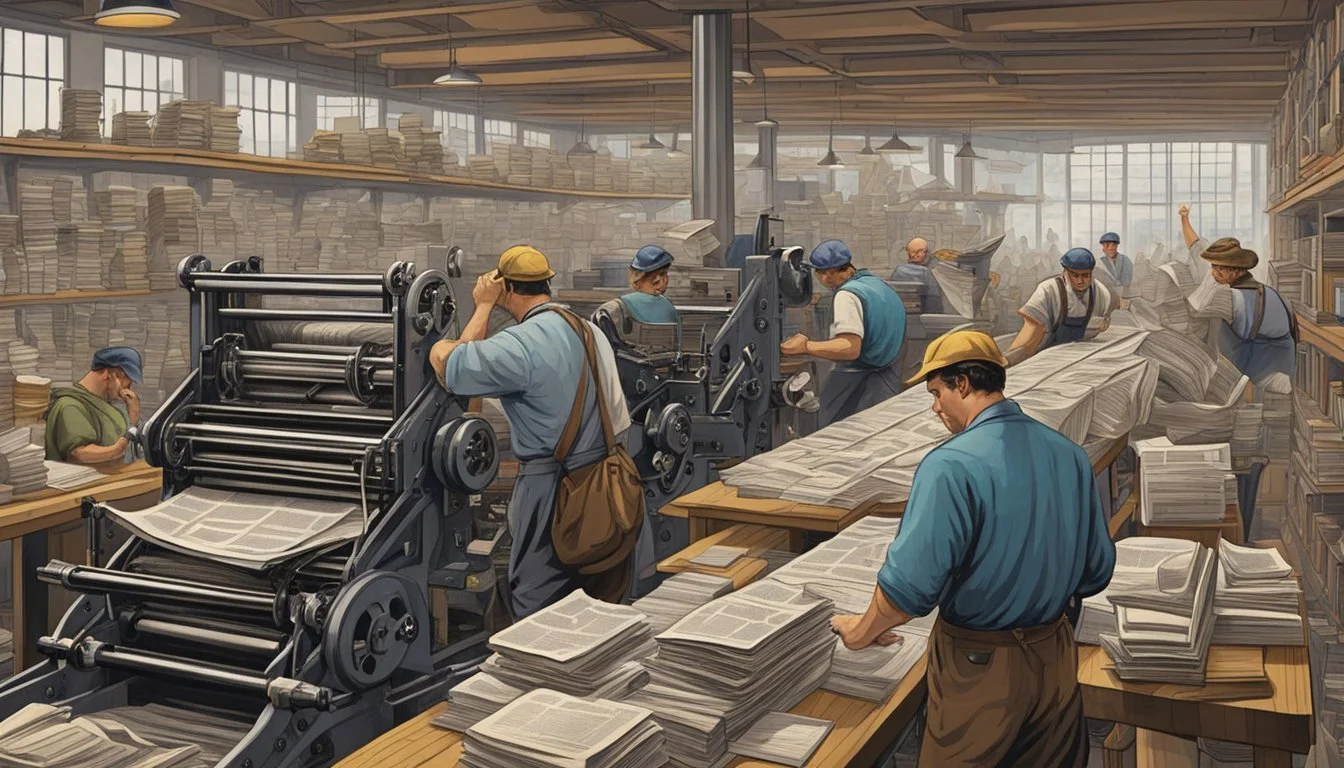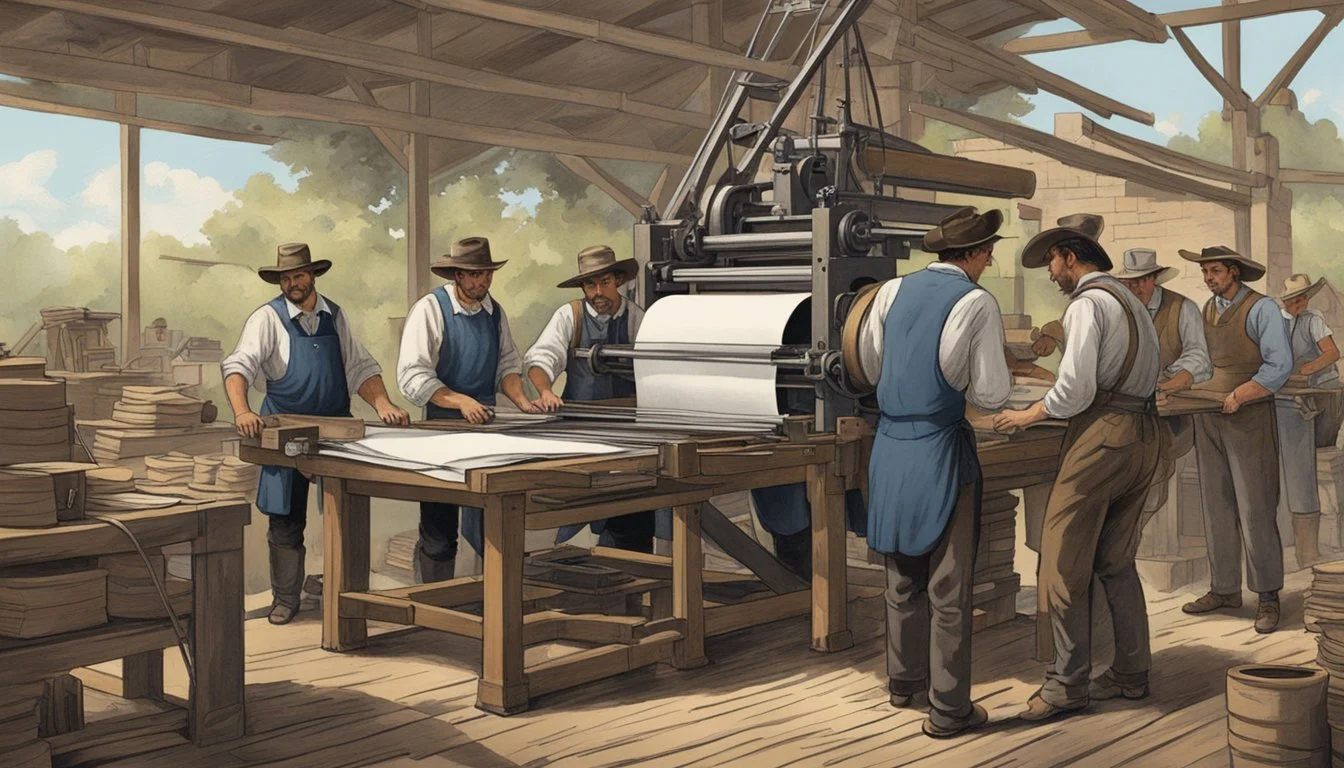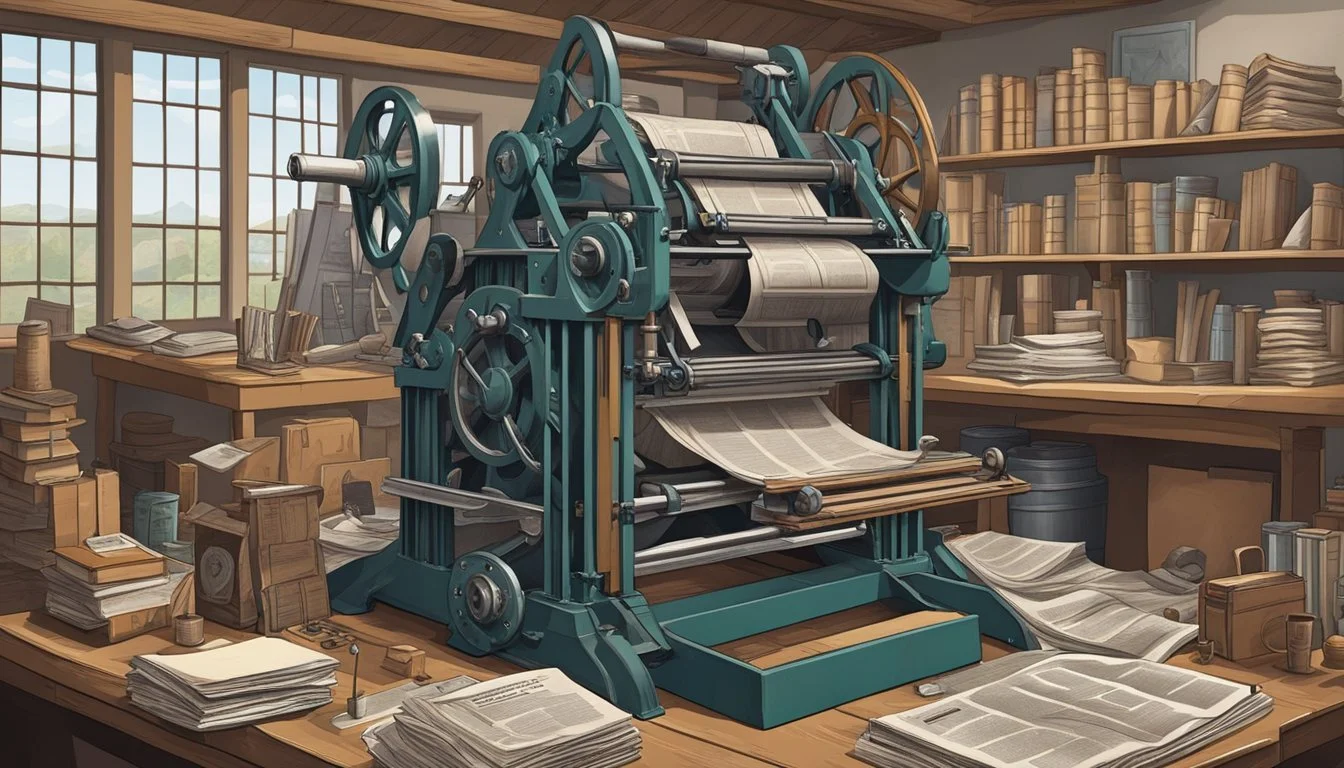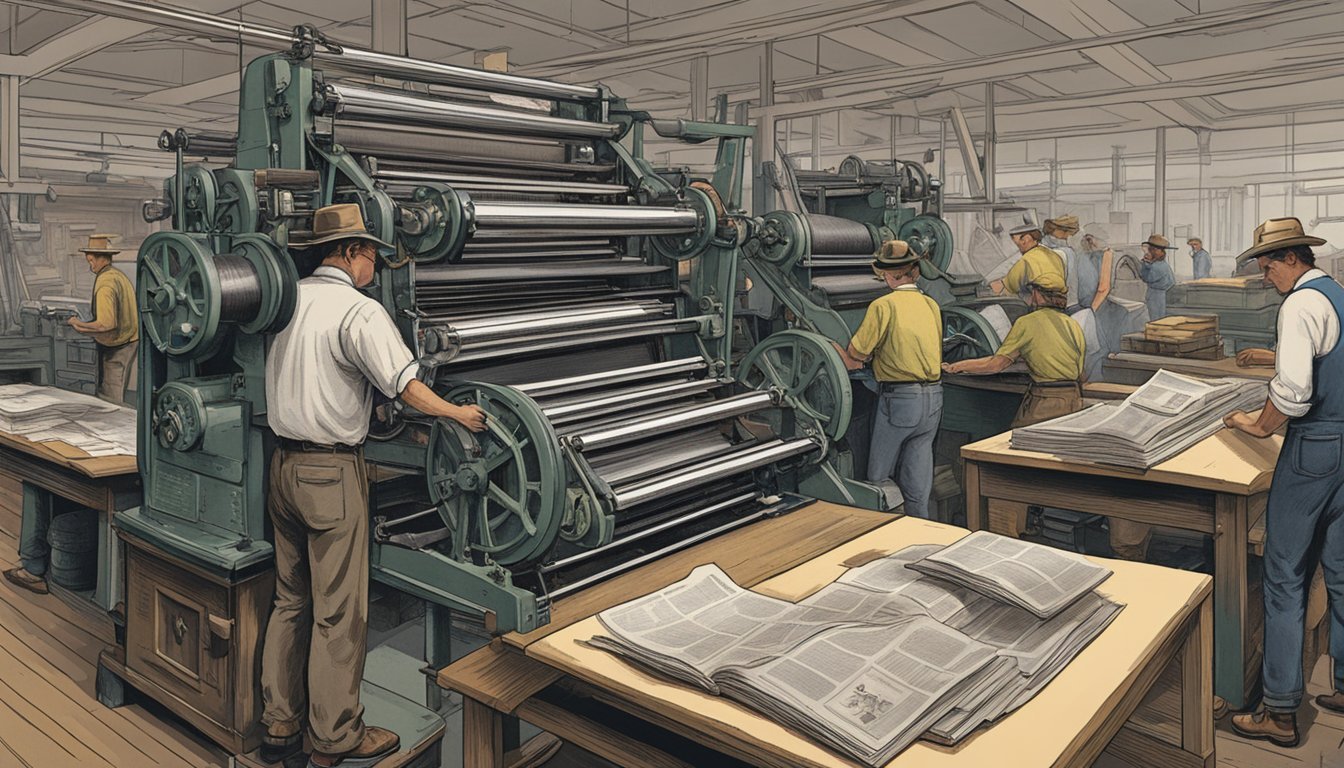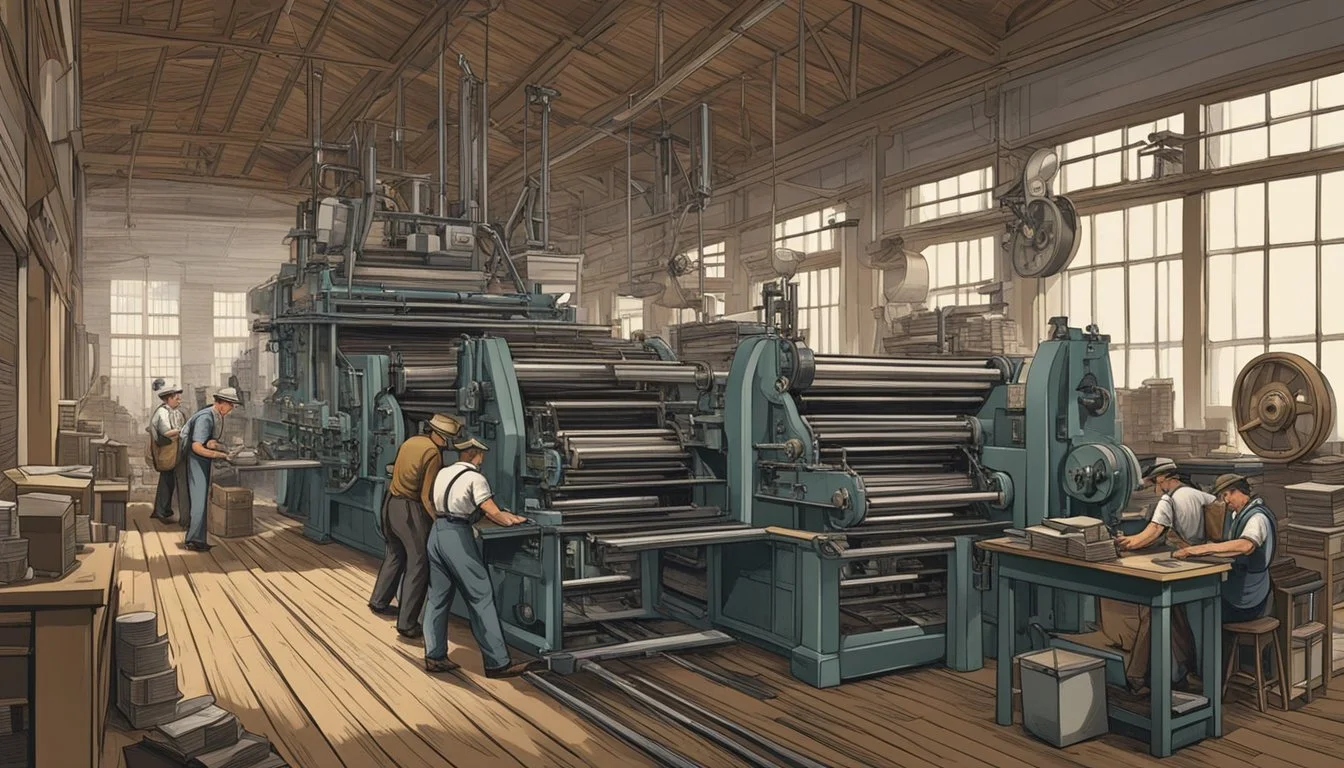German Texan Contributions to Texas Printing and Publishing
A Historical Impact Analysis
German Texans have had a significant impact on the landscape of printing and publishing in Texas. From their arrival in the 19th century, they brought with them a rich tradition of literature and a valued culture of learning. This immigrant community established various publications, many of which catered to the German-speaking population of Texas. These efforts sustained and promoted the German language and heritage in a rapidly diversifying state, providing a lifeline for cultural identity among German Texans.
One notable figure in this history is Eugene Von Boeckmann, an immigrant who settled in Austin in 1872. Along with his father, Von Boeckmann established a printing business that contributed to the industry's growth in Texas. Their work exemplifies how German immigrants harnessed their expertise to serve not just their own community but also the broader Texan society. German-language newspapers and publications became a fixture in many communities, solidifying the role of German Texans in enriching the state's cultural tapestry.
The contribution of German Texans to the state's printing and publishing industry was not limited to language preservation. They entered various occupations in Texas, impacting diverse sectors and integrating into the larger social fabric. Their work ethic and entrepreneurial spirit drove the industry forward, leaving an indelible mark on Texas's cultural and economic history. Through the lens of printing and publishing, the narrative of German Texans is woven into the larger story of Texas, highlighting the intercultural exchanges that shape a state's identity.
Early Migration and Initial Contributions
During the mid-19th century, German immigrants significantly influenced Texas' print culture, establishing a legacy in the state's publishing industry through pioneering settlements and the establishment of print media.
The Birth of Texas' German Belt
German settlers began arriving in Texas during the 1830s, drawn by the promise of economic opportunity. They established a region known as the German Belt, spanning central Texas, which became a hub for German culture and enterprise.
Their early contributions to Texas included the establishment of newspapers and other print publications, which served not only as informational resources but also as unifiers of the scattered German populace.
Friedrich Ernst and the First German Publications
Friedrich Ernst, often regarded as the "Father of German Immigration to Texas," played a pivotal role in the early migration and cultural establishment. Settling in Austin County, he wrote "Reise nach Texas" (Journey to Texas)—a detailed account of life in Texas that inspired many Germans to emigrate.
The first German newspapers in Texas, which Ernst supported, provided critical information for immigrants while fostering a sense of community and identity, laying the foundation for German contributions to the state’s cultural landscape.
Adelsverein: The Society for German Emigration to Texas
The Adelsverein, officially known as the Society for the Protection of German Immigrants in Texas, orchestrated a significant wave of migration starting in the 1840s. This society helped settle thousands of Germans in the Texas Hill Country.
Led by figures such as John O. Meusebach, the Adelsverein sponsored the creation of German settlements and, consequently, the spread of German publications and culture. They established towns that became centers of German heritage, making substantial impacts on print media in the period leading up to the Civil War.
Cultural and Educational Influence
The German Texan community significantly shaped the cultural and educational landscape of Texas, particularly through the establishment of schools, founding of institutions, and contributions in higher education.
Establishing Schools and the Role of German Teachers
German immigrants to Texas placed a high value on education, leading to the establishment of numerous schools across the state. These schools were often the first to provide instruction in both English and German, reflecting the bilingual nature of the community. German teachers were pivotal, often arriving with advanced training from Europe, and they played a key role in raising educational standards and incorporating German literature and language into the curriculum.
Key Schools and Teachers:
First German School in Texas: Established by German settlers in the 19th century.
German Teachers: Brought European educational methods, emphasizing rigorous academics.
Founding Texas German Institutions and Societies
The German Texan community also formed various societies and institutions aimed at preserving their culture and promoting education. Among these, the German-Texan Heritage Society stands out as a leading organization dedicated to preserving and documenting the history, culture, language, and literature of German Texans.
Notable Institutions:
German-Texan Heritage Society: A key institution preserving German-Texan heritage.
University Contributions to the Texan German Language and Literature
Higher education institutions have been integral in the preservation and study of Texas German, a unique dialect that developed in Texas. The University of Texas Press has contributed to this through the publication of works on German literature and culture. Colleges and universities have fostered the study of German language and literature while also focusing on the impact of German Texans in academics and culture.
University Involvement:
University of Texas Press: Offers publications on Texas German dialect and German literature.
German Language and Literature Programs: Found across Texan universities and colleges, supporting the academic study of the subject.
Press and Publication Expansion
The expansion of the German Texan press and publishing industry showcases a significant contribution to the cultural and historical landscape of Texas, emphasizing the importance of German heritage in shaping local media.
German Newspapers: Neu-Braunfelser Zeitung and Galveston Zeitung
In the mid-1800s, German immigrants established themselves in Texas, bringing their rich cultural heritage, which included the tradition of print journalism. Neu-Braunfelser Zeitung, founded in New Braunfels, and Galveston Zeitung, based in Galveston, were among the first German-language newspapers serving the growing community's need for news and discussion in their native language.
Neu-Braunfelser Zeitung catered to residents in New Braunfels and its surroundings.
Galveston Zeitung served the coastal region, connecting immigrants with their homeland.
San Antonio Zeitung and the Spread of German Press
The German press burgeoned in Texas with the initiation of publications like San Antonio Zeitung, leveraging San Antonio's position as a hub for culture and commerce. This newspaper became a vital source of information for German Texans residing in urban and rural areas, including towns like Fredericksburg.
San Antonio Zeitung facilitated the spread of German language news.
It strengthened the cultural cohesion among German-speaking communities in Texas.
Role of Publishers and Writers During Conflicts
During periods of conflict such as World War I and World War II, publishers and writers found themselves in a precarious position due to public sentiment shifting against German heritage. Despite such challenges, these individuals labored to maintain a degree of neutrality in their publications, navigating issues like Prohibition and political allegiance. The role of the press was pivotal in representing the interests and perspectives of German Texans, even as they faced scrutiny due to their heritage and the languages their publications employed—German, English, and occasionally Spanish.
Publishers preserved their dedication to their cultural identity and freedom of the press.
Writers often had to balance community needs with broader societal pressures.
Economic Contributions and Legacy
German Texans have played a pivotal role in the economic development and cultural preservation of Texas. They significantly influenced local industries, agriculture, and brewing, and they also actively contributed to the conservation of their material and cultural heritage within the state.
The Role of German Texans in Local Industries
German immigrants in Texas founded various enterprises, especially in places like Boerne and Schulenburg, which became known for their contribution to the local economy. In Central Texas and the Texas Hill Country, they leveraged their expertise to establish essential industries. They were instrumental in the development of the printing and publishing sector, producing a substantial number of German language newspapers and books, which facilitated the dissemination of information within the German-speaking community and beyond.
German-Texans Impact on Agriculture and Brewing
In the realm of agriculture, German-Texans introduced sophisticated farming techniques to the Hill Country, improving crop yields and efficiency. These settlers also left an indelible mark on the Texan brewing industry. Many German immigrants, drawing upon their rich brewing heritage, established successful breweries. Their brewing techniques and establishments became a staple of Texas culture, contributing to the state's economic prosperity.
Preservation of Cultural and Material Heritage
German-Texans in towns such as Comfort and San Marcos have been instrumental in preserving their cultural and material heritage. The architecture of their houses often reflects distinct German influences, which are now integral to the historic character of these areas. Annual celebrations like Wurstfest and German Culture Month serve to both honor German traditions and contribute to the local economy by attracting tourism. Additionally, the diligent efforts to maintain historical sites and artifacts have created a lasting legacy that encapsulates the material culture of German Texans.
Contemporary Reflections and Cultural Celebrations
The rich legacy of German Texans continues to shape the cultural landscape of the state, with vibrant celebrations, educational initiatives, and artistic contributions reflecting this dynamic heritage.
Modern Day Festivals and Recognition
Texas hosts numerous festivals that celebrate German heritage, such as Oktoberfest in Fredericksburg and Wurstfest in New Braunfels. These events are characterized by traditional German music, dancing, and cuisine, affirming the enduring presence of German culture in regions known as the "German Belt." Legislators and cultural leaders, often centered in Austin, formally recognize these contributions, ensuring that the German Texan legacy receives its due acknowledgment.
Challenges and Progress of the German-Texan Community
While the German-Texan community has made significant cultural strides, it faces challenges such as the decline of the Texas German dialect. Efforts by educators and linguists in the community are focused on revitalizing the language. Scholars like Michael Barnes, who delve into Texan history, provide essential insight into the community's evolution and its efforts to retain cultural identity amidst a rapidly changing demographic landscape.
German-Texan Contributions in Modern Education and Arts
Educational institutions respect and integrate German Texan history into their curricula, highlighting the community's impact on Texas’s development. Additionally, German influence is evident in Texas’s thriving arts scene, where elements of German design and musical traditions continue to resonate. In Austin, entities such as the Texas Legislature have been known to celebrate German-Texan cultural accomplishments, reinforcing the community’s role in both the arts and education of the state.

